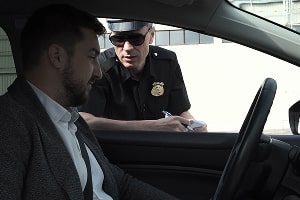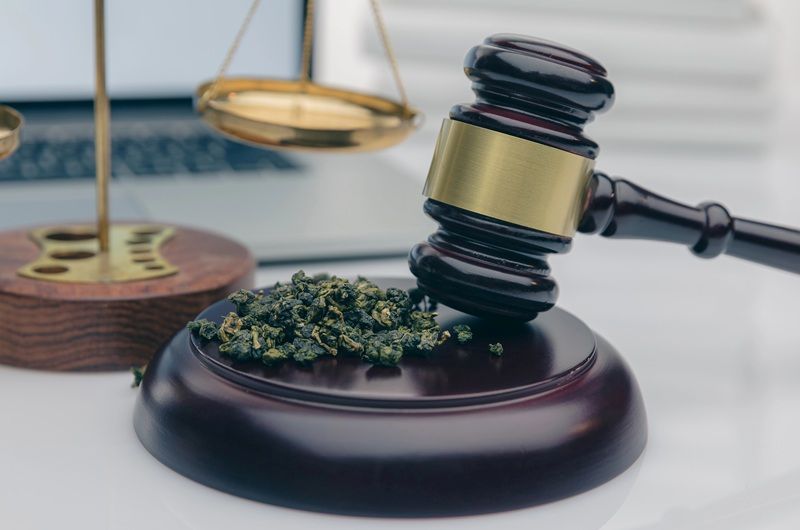Prescription drug abuse and trafficking are growing concerns in Fairfax County, Virginia, leading to serious legal consequences. Law enforcement and prosecutors aggressively pursue such cases, and convictions may result in fines and prison time. If you are facing possession, distribution, or trafficking charges, understanding your rights and the law is vital.
This article explains prescription drug laws, potential penalties, factors influencing sentencing, and possible defense strategies. If you or a loved one is facing drug-related charges, this guide will help clarify your options. It also discusses how The Irving Law Firm provides legal support to protect your rights.

Understanding Prescription Drug Abuse
Prescription drug abuse occurs when medication is taken without formal, written instruction from a licensed healthcare professional. It can be in higher doses than prescribed or for recreational purposes. Even if these drugs have legitimate medical uses, misuse leads to addiction and severe health risks.
Virginia law strictly prohibits unauthorized possession or use of these substances. Opioids, stimulants, and depressants are among the most commonly abused prescription medications. Many believe prescription drugs are safer than illegal substances, but misuse can be just as dangerous.
Dependency can develop quickly, increasing the risk of overdose and long-term health issues. Even possessing a prescription medication without authorization can lead to criminal charges. Law enforcement aggressively prosecutes these offenses, and penalties can be severe.
Recognizing the difference between proper use and abuse is essential to staying within the law. Virginia categorizes prescription drugs based on their medical use and potential for abuse. Understanding these classifications helps determine the severity of charges and the possible penalties for unlawful possession or distribution.
Virginia’s Controlled Substance Schedules
Virginia categorizes controlled substances into different schedules based on their medical use and potential for abuse. The higher the risk of addiction, the more severe the classification and legal consequences. Prescription drugs, including opioids, stimulants, and sedatives, are placed in these schedules.
Understanding these classifications is essential for knowing the legal risks of possessing or distributing certain medications. Schedule I drugs, like heroin, have no accepted medical use and carry the harshest penalties. Schedule II drugs, such as oxycodone and fentanyl, have medical benefits but a high potential for abuse.
Lower schedules, like Schedule IV or V, include medications with a lower risk of dependency. However, possessing any scheduled drug without a prescription is illegal and can lead to criminal charges. Under § 18.2-250 of the Code of Virginia, unauthorized possession of controlled substances is a serious offense.
The severity of punishment depends on the drug’s classification and quantity. A conviction can result in fines, probation, or even prison time.
Consequences Of Prescription Drug Possession
Possessing prescription drugs without a valid prescription is a serious offense in Virginia. State laws impose strict penalties, even for first-time offenders. The consequences depend on various factors, including the type of drug and the amount in possession. Understanding these penalties is vital for anyone facing prescription drug charges.
Penalties Based On Drug Classification
Virginia categorizes controlled substances into schedules based on medical use and potential for abuse. Many prescription drugs, like opioids and stimulants, fall under Schedule II or III due to their high addiction risk. Possessing a Schedule II drug without a prescription is a felony, while lower schedules may result in misdemeanor charges.
Fines & Jail Time
Unlawful possession of prescription drugs carries serious penalties in Virginia. Misdemeanor offenses can lead to fines of up to $2,500 and up to one year in jail. Felony possession, often involving Schedule I or II substances, can result in years of imprisonment and significant fines.
Alternative Sentencing
Some offenders may qualify for probation, community service, or mandatory drug education instead of jail time. Courts typically reserve these options for first-time or low-risk offenders. Eligibility depends on prior convictions, drug type, and case specifics.
Impact On Criminal Record & Future Consequences
A conviction for unlawful possession of prescription drugs can have lasting effects beyond immediate penalties. A criminal record can make finding employment, securing housing, or obtaining professional licenses difficult. Repeat offenses result in harsher sentencing, reducing the chances of alternative punishments.
Virginia imposes severe penalties for unlawful possession of prescription drugs. Even a first offense can lead to significant legal trouble. Understanding the law and seeking legal guidance is essential for protecting your rights.
Prescription Drug Trafficking Offenses
Trafficking prescription drugs involves the illegal distribution or sale of controlled substances. Virginia law imposes harsh penalties to deter unauthorized drug sales and protect public safety. Authorities aggressively prosecute individuals engaged in manufacturing or distributing these medications without proper authorization.
Convictions often lead to mandatory minimum prison sentences and substantial fines. The severity of penalties depends on the drug’s classification and quantity. Higher schedule drugs, like Schedule II opioids, result in longer prison terms and steeper fines. Repeat offenses lead to even harsher consequences, including extended incarceration.
A trafficking conviction also creates a permanent criminal record, limiting job opportunities and professional licenses.
Key Factors Influencing Sentencing
Sentencing for prescription drug offenses in Virginia varies based on multiple factors. Courts consider details such as the type and quantity of drugs involved, prior convictions, and any aggravating circumstances. Recent legislative changes have also increased penalties for specific substances. Understanding these factors can help individuals facing charges prepare a more vigorous legal defense.
Quantity Of Drugs Involved
The amount of drugs in possession or distribution plays a major role in sentencing. Larger quantities often indicate intent to distribute, leading to more severe penalties. Even a slight increase in the amount can elevate charges from possession to trafficking. Virginia law imposes strict mandatory minimum sentences for high-volume drug offenses.
Prior Criminal History
A defendant’s criminal record significantly impacts sentencing outcomes. Individuals with previous drug-related convictions often face harsher penalties, including extended jail time and higher fines. Repeat offenders may also lose eligibility for alternative sentencing programs like probation or rehabilitation. Courts impose stricter punishments to deter continued drug-related offenses.
Involvement Of Minors
If an offense involves minors, the penalties increase dramatically. Selling or distributing prescription drugs to minors can lead to felony charges and mandatory prison sentences. Using minors to transport or distribute drugs also results in enhanced sentencing. Courts treat these cases with particular severity to protect vulnerable individuals.
Recent Legislative Changes
Virginia has updated its drug laws to address the growing opioid crisis. The reclassification of fentanyl as a Schedule I drug has resulted in stricter penalties. Possession or distribution of fentanyl-related substances now carries the same consequences as heroin and other highly dangerous drugs. These changes reflect the state’s aggressive stance on opioid abuse.
Multiple factors influence sentencing in prescription drug cases, making legal outcomes highly variable. The amount of drugs, prior convictions, and involvement of minors all play a role in determining penalties. Staying informed about recent legal changes is critical.
Defenses Against Prescription Drug Charges
Being charged with a prescription drug offense does not automatically result in a conviction. Several legal defenses may help reduce charges or even lead to case dismissal. A strategic defense depends on the case’s specific circumstances, including how the drugs were obtained and handled. A strong legal strategy can significantly affect the outcome.
Lack Of Intent
Prosecutors must prove that the accused knowingly possessed or distributed the drug. It could be a strong defense if the defendant was unaware that the substance was in their possession. This situation may arise if someone leaves the medication in a shared space. An attorney can use a lack of intent to challenge the prosecution’s claims.
Valid Prescription
A legitimate prescription for the medication in question can be a complete defense. If the accused can prove that a licensed medical professional prescribed the drug, the charges may be dismissed. This defense is particularly effective in cases involving medications like opioids or anxiety treatments. Providing medical records and pharmacy receipts can strengthen this argument.
Unlawful Search & Seizure

Law enforcement officers must follow legal procedures when conducting searches or making arrests. If police obtain evidence through an illegal search or seizure, the court may exclude it from the case. A violation of Fourth Amendment rights can weaken the prosecution’s argument. Challenging the legality of the search can sometimes lead to case dismissal.
Every prescription drug case is different, requiring a tailored legal approach. Lack of intent, a valid prescription, and procedural violations are among the most effective defenses. An experienced attorney can assess the case details and build a strong strategy. Seeking legal counsel at the start can improve the chances of a favorable outcome.
The Irving Law Firm Provides Strategic Defense
At Fairfax County Criminal Defense Attorneys, we are committed to defending clients against drug-related charges in Virginia. Our experienced attorneys understand the complexities of prescription drug laws and are committed to providing comprehensive legal assistance. We work diligently to protect your rights and guide you through the legal system.
Our approach includes thorough case analysis, strategic defense planning, and personalized support. We aim to achieve a favorable outcome for our clients through negotiation or litigation. Trust us to be your advocate and help you navigate the legal challenges you face with dedication and skill.
Understanding the legal consequences of prescription drug abuse and trafficking in Virginia is essential. Awareness of controlled substance classifications, potential penalties, influencing factors, and possible defenses can aid in navigating these complex issues.
If you face such charges, you must seek professional legal assistance immediately. The Irving Law Firm is here to help. We offer experienced legal representation to protect your rights and guide you through the legal process.




